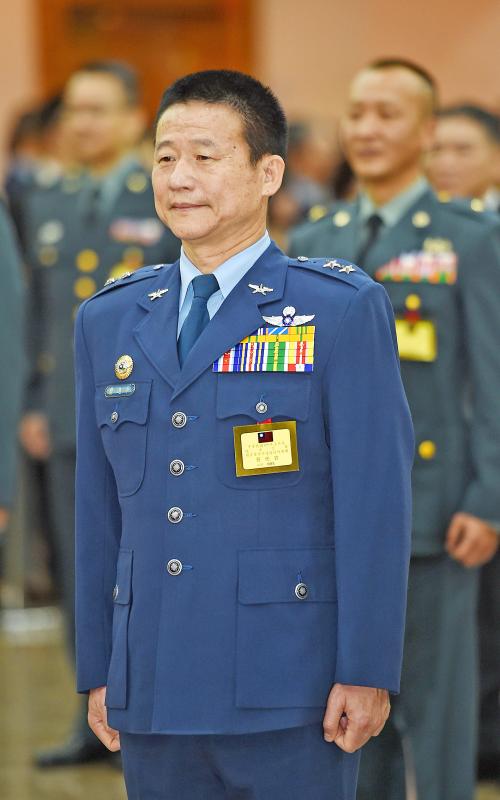A spate of cyberattacks originating from China could be preparations for an attempt to paralyze Taiwan’s key computer systems and public infrastructure to disrupt the inauguration of President Tsai Ing-wen (蔡英文) and vice president-elect William Lai (賴清德) on May 20, Ministry of National Defense officials and Democratic Progressive Party (DPP) Legislator Wang Ting-yu (王定宇) said yesterday.
Wang told a meeting of the legislature’s Foreign Affairs and National Defense Committee in Taipei that he has learned China was behind a spate of malware attacks this week that aimed to disable the computer system at Taiwan’s two major oil suppliers — state-owned CPC Corp, Taiwan and privately owned Formosa Petrochemical Corp — as well as IC testing and packaging firm Powertech Technology and some financial companies.
He cautioned Minister of National Defense Yen De-fa (嚴德發) and other ministry officials that the malicious attacks have been increasing in the past few weeks and that China would mount more coordinated attacks for a major escalation in the coming days to cause major disruptions or paralyze computer networks on May 20.

Photo: Liu Hsin-de, Taipei Times
Deputy Chief of the General Staff for Communication, Electronics and Information Tsao Chin-ping (曹進平) said that cyberattacks targeting the Web sites of government agencies or state-run companies could intensify in the buildup to the inauguration.
“The Chinese cyberarmy’s intrusion channels into these computer systems came through mobile storage devices and social media platforms. Our military units will bolster cybersecurity measures to defend against these types of hacking,” Tsao said.
National Security Bureau officials yesterday identified the sources of the cyberattacks as China and Russia.
These were likely coordinated cyberattacks and test runs by China to sabotage the presidential inauguration, they said.
China might be planning to paralyze Taiwan’s key government computer systems, impair its power supply and state utilities, and disable other major public infrastructure, the officials said.
An initial probe found that the hackers used Internet protocol addresses registered in Europe as springboards to implant backdoor programs and malware into servers at Taiwan’s health agencies, medical research centers and Centers for Disease Control offices to steal critical information and files, they said.
Wang also pointed to evidence indicating that Chinese cyberarmy units have targeted Taiwanese health agencies and medical research institutes working on a COVID-19 vaccine, adding that they have also targeted similar entities in the US.

Taiwanese can file complaints with the Tourism Administration to report travel agencies if their activities caused termination of a person’s citizenship, Mainland Affairs Council Minister Chiu Chui-cheng (邱垂正) said yesterday, after a podcaster highlighted a case in which a person’s citizenship was canceled for receiving a single-use Chinese passport to enter Russia. The council is aware of incidents in which people who signed up through Chinese travel agencies for tours of Russia were told they could obtain Russian visas and fast-track border clearance, Chiu told reporters on the sidelines of an event in Taipei. However, the travel agencies actually applied

New measures aimed at making Taiwan more attractive to foreign professionals came into effect this month, the National Development Council said yesterday. Among the changes, international students at Taiwanese universities would be able to work in Taiwan without a work permit in the two years after they graduate, explainer materials provided by the council said. In addition, foreign nationals who graduated from one of the world’s top 200 universities within the past five years can also apply for a two-year open work permit. Previously, those graduates would have needed to apply for a work permit using point-based criteria or have a Taiwanese company

The Shilin District Prosecutors’ Office yesterday indicted two Taiwanese and issued a wanted notice for Pete Liu (劉作虎), founder of Shenzhen-based smartphone manufacturer OnePlus Technology Co (萬普拉斯科技), for allegedly contravening the Act Governing Relations Between the People of the Taiwan Area and the Mainland Area (臺灣地區與大陸地區人民關係條例) by poaching 70 engineers in Taiwan. Liu allegedly traveled to Taiwan at the end of 2014 and met with a Taiwanese man surnamed Lin (林) to discuss establishing a mobile software research and development (R&D) team in Taiwan, prosecutors said. Without approval from the government, Lin, following Liu’s instructions, recruited more than 70 software

Chinese spouse and influencer Guan Guan’s (關關) residency permit has been revoked for repeatedly posting pro-China videos that threaten national security, the National Immigration Agency confirmed today. Guan Guan has said many controversial statements in her videos posted to Douyin (抖音), including “the red flag will soon be painted all over Taiwan” and “Taiwan is an inseparable part of China,” and expressing hope for expedited reunification. The agency last year received multiple reports alleging that Guan Guan had advocated for armed reunification. After verifying the reports, the agency last month issued a notice requiring her to appear and explain her actions. Guan